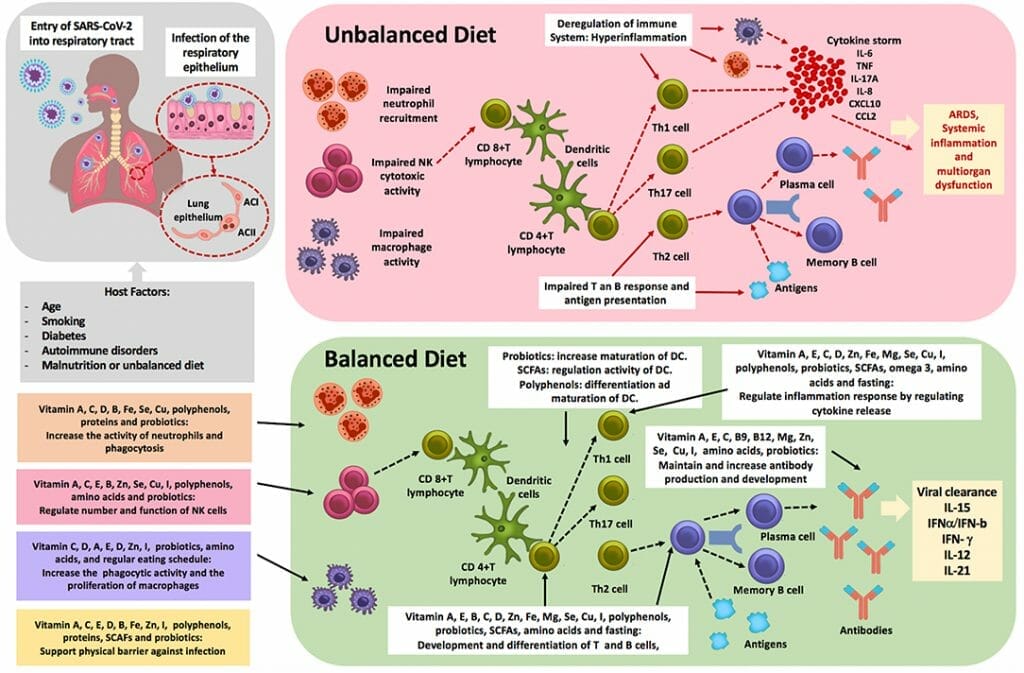
There is a seasonal change to weather patterns that is reflected in the behaviour and responses to biological challenges within us. Physical, psychological, and metabolic, including immune rhythms are all circadian in their functionality and as such have related shifts in their capability and responsiveness at different times of the year and at different latitudes.
In most cases these are of little consequence, after all we have a substantive level of redundancy built into all our integrative systems, each one operating to support the other to minimise entropy or dysfunction.
However, managing these systems requires a high level of biological autonomy and feedback loops, that in turn rely on the internal and external environment to provide cues and support. Much like our immune system does in its evolution as it seeks to protect us. By now you are probably less interested in antibodies than a few weeks ago, but they remain a viable part of our overall immune defence and reflect exposure of various antigens and so can confer long term protection.
In the public’s imagination “immunity” tends to mean resistance to a disease, while to scientists it is something much more nuanced and complex. Immunologists understand it more as a question of degree — how rapid was an individual’s initial response to a pathogen? Did their cells recognise it from past exposure and respond more quickly? How many antibodies did it produce and were they the right ones, and many other intersecting events? From our side of the immune discovery, it is the role that nutrients, flavonoids, bacteria and foods as well as lifestyle habits, play in the development and viability of immune quality.
There are many questions being voiced about the seasonal risks related to transmission rate rather than seasonal and circadian risks related to nutrients, such as vitamin D, an important immune modulator that naturally declines in the northern hemisphere as the nights draw in.
A paper published in Frontiers in Public Health reviews many of the recent and older understandings of how food and food concentrates have a direct and indirect effect on the functionality of the immune system. This narrative review principally aims at revealing the benefits of optimal nutrition in the prevention and treatment of viral infection, by strengthening the immune system. They explore the benefits of several macro and micronutrients as well as their mechanisms of action.
Utilising the seasonal effects on immune quality as a guide for enhancing overall nutrient supply with a specific emphasis on viral defence, and extracting primary foods as recommended, will provide an extensive range of evidence-based interventions, recipes and solutions. For example, a UK study found that 40% of the white Caucasian population had circulating Vit D levels below 25 nmol/L with the numbers increasing as the latitude became more northern. While this level is regarded as low, if a higher level of 50 nmo/L were to be seen as conferring a better immune capability, it’s reasonable to expect that over 50% would be deficient.
This diagram taken from the paper is one you may like to save for clinical use and or personal guidance.

As you prepare for Autumn and the varying level of infective transmission rise, also keep in mind that planning to enhance the immune system’s resilience via optimal nutrient status is best done by prevention rather than only engaging in interventions during infection.

4 Comments. Leave new
This piece is so important. Thank you for posting the picture from the study paper – I don’t understand all the terminology but it gives me a basis to find out more. We’re being told that immunity is so important and that we must look after our guts but this explains succinctly the reasons why and what’s happening in the body if we don’t.
It is only proper and right that I should thank you ,and if I may on behalf of your faithful clients and students and followers, Michael and Antony for keeping us well updated with the latest scientific studies on the health benefits of optimum nutrition as much as giving us reviews on pathophysiology on Immunology.
No doubt our health and longevity almost always points to our immune system’s resilience and adaptability.
Many many thanks once again Michael and Antony . Long may you continue to provide us with and share your knowledge.
Many blessings,
Nina
Thks the info! Shared it to my FB contacts!
I second that – your well written, soundly researched articles are always thought provoking and such a pleasure read.
Thank you, do please keep them coming.